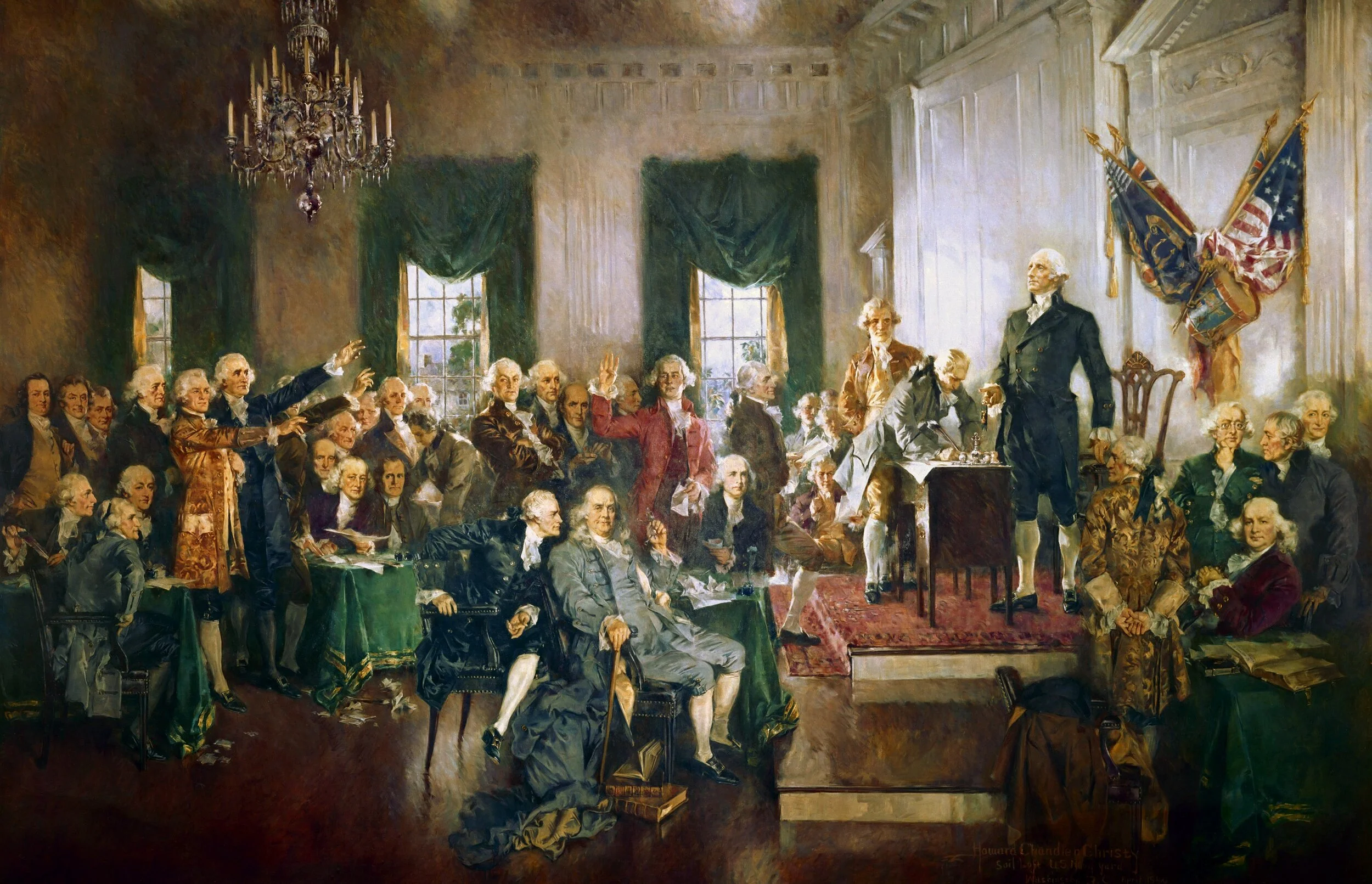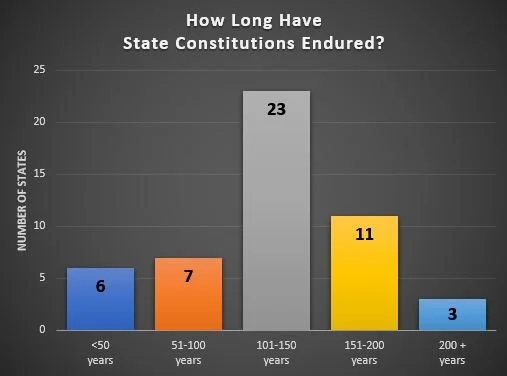As American as Apple Pie
/A Citizen’s Syllabus contends that Americans ought to be engaged with the civil society around us and concerned with making it better. Engagement includes critiquing how well everything works to achieve economic sufficiency and social fairness. And everything includes the basic Constitution that lies at the heart of it all.
Our civil society in 2021 is unfair, undemocratic, and inefficient. And the causes of these problems go down to the roots. The Constitution doesn’t deliver on its promises of domestic tranquility and general welfare.
Some readers will be uncomfortable with the idea of fiddling with the Constitution. they will consider the idea controversial, dangerous, unpatriotic, and even scandalous. Some will insist that replacing the Constitution simply can’t be done. But replacing constitutions with newer and better ones is as American as apple pie. Americans have adopted about 150 constitutions in the nation’s history.
Of course this refers to state constitutions.
It shouldn’t be necessary to say that every state has a constitution, but perhaps it is. Gary Porter of the Constitution Leadership Initiative describes in this online explainer why a nation with a strong central government like that of the US still needs state constitutions:
[T]he formation of a new national government did not eclipse the state governments, in fact it relied upon the states to continue to provide the vast majority of governmental services within each state, which the Tenth Amendment to the U.S. Constitution obliquely reminds us: “The powers not delegated to the United States by the Constitution, nor prohibited by it to the States, are reserved to the States respectively, or to the people.”
It is a large task to understand and appreciate the US Constitution, Doing that for each of the 50 state constitutions would be excessive. Fortunately, we don’t need to consider the states’ constitutions in any detail. The point here is just that in the United States of America, replacing old constitutions with newer ones happens fairly often, to good effect and with little turmoil.
America last added a new state to the union in 1959. No new states have been added in the past 50 years. Nevertheless, six states have adopted constitutions within that time. Georgia adopted its current constitution in 1983. Thirteen states have constitutions 100 years or younger even though most of those have been states much longer. Almost half the states’ constitutions are between 100 and 150 years old.
Fourteen states have constitutions of 150 years or older. The New England states have long traditions of self-government. The English King granted each colony a charter of partial self-rule. Connecticut’s state charter goes back to 1662. The oldest state constitution under American rule is that of Massachusetts, which was adopted in 1780, making it older than the US Constitution.
Only 20 states use their original constitution. Nine more are today governed by the second constitution. The other 31 have replaced their constitution two or more times. Georgia and Louisiana have both had 10. Louisiana adopted new constitutions in 1812, 1845, 1852, 1861, 1864, 1868, 1879, 1898, 1913, 1921 and 1974.
Writing and re-writing state constitutions has typically been a mild affair. In researching this essay, I found only a few instances when trouble arise while a state was writing a new constitution. Kansas was preparing for statehood in the late 1850s, as America was moving toward civil war. Like everything else at that time, Kansas statehood was overshadowed by the greater issue of slavery. The people who wanted to bring Kansas into the union as a slave state met at a town called Lecompton and wrote a constitution that protected slavery and explicitly denied rights to black people. Supporters of a free Kansas met in Topeka and drafted a different constitution. Neither was approved by the state or by Congress. Later conventions were held in Leavenworth and Wyandotte, and the Wyandotte constitution eventually got approved by territorial voters and Congress and made Kansas a state in 1861.
Hawaii’s drive toward statehood was opposed by a governor who worried the Hawaiians were communists. President Eisenhower was reluctant to make a state of Alaska because he wanted to reserve the territory for military purposes. In Oklahoma, the Indian nations preferred their tribal governments but had statehood forced on them. Even today, a majority of citizens in Puerto Rico and the District of Columbia want statehood. If it were up to the people living there, both would already be states. But Congress is slow to let them in.
The main point about statehood, though, is that the process of writing constitutions for states has never been controversial or violent or troublesome. The worry that opening up a conversation about constitutional matters would be dangerous just isn’t borne out in history. Maybe there is something uplifting and edifying about sitting down and discussing virtuous goals with other serious people. It seems to bring out the good in citizens.
With a few exceptions in the mid-1800s, America’s state constitutions were created in a very democratic, very American way — the same method that we celebrate the US Constitution for. Citizens assembled, discussed what they wanted from government, designed a plan combining proven methods from other states and nations with new ideas they believed worth trying. They then submitted their plan to the voting public of the state. It’s a process that no one who believes in representative government could object to.
The fact that state constitutions have been revised and updated many times in American history does not, by itself, make a case for revising, updating or replacing the US Constitution. But it does take away one possible objection to doing that. It shows that Americans have a strong tradition of re-writing their constitutions. It is not impossible. It is not dangerous. It is not “opening a can of worms.”
The famous Constitutional Convention of 1787 peacefully replaced the old Articles of Confederation with something better. Most of the state constitutions replaced old documents with something better. America is on a path where the need for something better grows more urgent. Two out of three American are dissatisfied with the way things are going.
A calm, respectful, slow and peaceful conversation about building the country up from the roots is possible — and it is far form the worst idea out there.
Think:
What do you know about your state’s constitution?
What do you think of apple pie?









